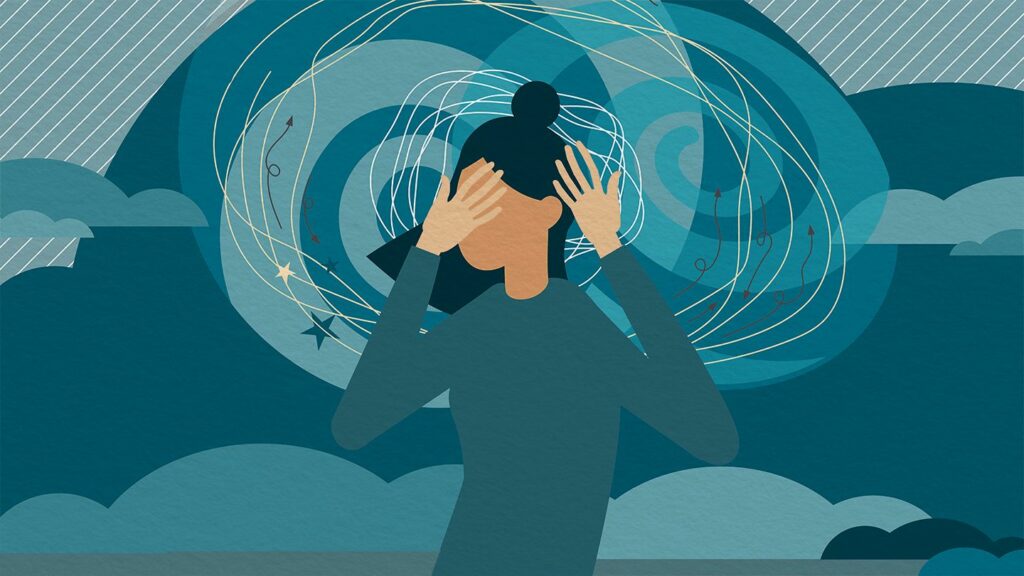It’s not easy to recover from PTSD. The symptoms can be incredibly debilitating, and it may feel like you’re stuck in a never-ending cycle. But there is hope! In this blog post, we will discuss 15 steps that can help you start the healing process and reclaim your life. We’ll also talk about how to approach PTSD recovery holistically. So if you’re ready to start on the road to recovery, read on!
Contents
- 1 Defining PTSD
- 2 15 Steps For PTSD Recovery
- 2.1 Seek therapy
- 2.2 Undergo medication
- 2.3 Try alternative approaches
- 2.4 Habituate to mindfulness and relaxation techniques
- 2.5 Join support groups
- 2.6 Refrain from bottling in your emotions
- 2.7 Make peace with your past
- 2.8 Keep track of your mood and symptoms
- 2.9 Create a healthy routine
- 2.10 Identify triggers
- 2.11 Give time to others
- 2.12 Stay clear of unhealthy coping mechanisms
- 2.13 Indulge in hobbies
- 2.14 Adapt an attitude of gratitude
- 2.15 Be kind to yourself
- 3 Conclusion
Defining PTSD
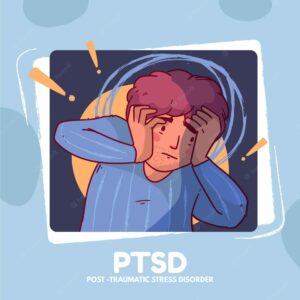 PTSD, also known as post-traumatic stress disorder, is a mental health condition that can occur after experiencing or witnessing a traumatic event. Symptoms include flashbacks, nightmares, anxiety, depression, and more. While it is normal to experience some level of distress after a traumatic event, people with PTSD often find that their symptoms are persistent and significantly interfere with their day-to-day lives.
PTSD, also known as post-traumatic stress disorder, is a mental health condition that can occur after experiencing or witnessing a traumatic event. Symptoms include flashbacks, nightmares, anxiety, depression, and more. While it is normal to experience some level of distress after a traumatic event, people with PTSD often find that their symptoms are persistent and significantly interfere with their day-to-day lives.
This particular disorder is more and more common in today’s society. We are constantly bombarded with images and stories of trauma, both on the news and through social media. It’s no wonder that so many people are developing PTSD!
There is no one-size-fits-all approach to recovery, but there are certain steps that can help everyone who is struggling with PTSD. It is essential to consider all available options and weigh out what will work best for you. There are a variety of options that can be helpful in managing symptoms and promoting healing.
15 Steps For PTSD Recovery
Fortunately, there are ways to recover from PTSD and live a happy, fulfilling life. These may not be a permanent cure to the condition, but they can help you manage your symptoms and eventually lead a more normal life. Here are 15 steps to help you begin the journey to healing.
Seek therapy
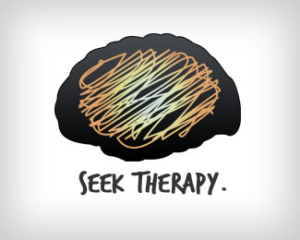 This is the very first step towards the healing journey of any mental illness, even PTSD. Therapy is the process of talking to a trained professional about your thoughts, feelings, and experiences. It is an opportunity to process the trauma you have experienced and learn healthy coping mechanisms.
This is the very first step towards the healing journey of any mental illness, even PTSD. Therapy is the process of talking to a trained professional about your thoughts, feelings, and experiences. It is an opportunity to process the trauma you have experienced and learn healthy coping mechanisms.
There are many different types of therapy available, so it is important to do some research and find a therapist that you feel comfortable with. For PTSD, the most common types of therapies can include the following.
- Psychodynamic therapy
- Cognitive behavioral therapy
- Dialectical behavioral therapy
- Narrative therapy
- Clinical hypnosis
- Expressive art therapy
- Tapping therapy
- Eye movement desensitization and reprocessing (EMDR)
All of these work differently and have their own unique benefits. It is important to talk to your therapist about what you hope to gain from therapy and find one that will be the best fit for you.
Undergo medication
There are times when one’s condition is too overwhelming that it needs chemical intervention through the form of medication. This is often the case with PTSD because of the high levels of anxiety, depression, and other symptoms associated with the disorder.
If you and your therapist feel that medication would be beneficial for you, there are a few different options available. These can help your disorder by evening out the chemicals in your brain, which can promote better mental health.
The most common type of medication prescribed for PTSD are:
- Selective serotonin reuptake inhibitors (SSRIs)
- Serotonin and norepinephrine reuptake inhibitors (SNRIs)
- Atypical antipsychotics
- Benzodiazepines
These medications are available in over-the-counter, common and non-scientific names such as:
These are just a few of the options available and it is important to talk to your doctor about what would be the best for you.
Try alternative approaches
With advancements in technology, there are now many different alternative approaches that can be helpful in managing PTSD symptoms. Some of these include:
- Virtual reality therapy
- Biofeedback
- Neurofeedback
- Electroconvulsive therapy (ECT)
- Deep brain stimulation (DBS)
- Transcranial magnetic stimulation (TMS)
They all involve different techniques but the goal is to retrain your brain to respond to triggers in a more positive way. These can be extremely helpful in managing your symptoms and can be done in addition to therapy or medication.
These are newer treatments that are still being studied but have shown to be promising in treating PTSD. If you are interested in exploring these options, talk to your therapist or doctor to see if they could be right for you.
Habituate to mindfulness and relaxation techniques
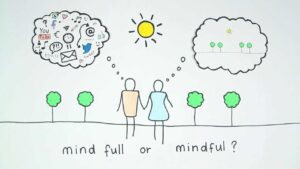 Mindfulness is a very recent advancement in the field of mental health. It is a form of therapy that teaches you to be present in the moment and focus on your thoughts, feelings, and sensations without judgment.
Mindfulness is a very recent advancement in the field of mental health. It is a form of therapy that teaches you to be present in the moment and focus on your thoughts, feelings, and sensations without judgment.
This can be extremely helpful for PTSD because it allows you to focus on the here and now rather than dwelling on the past. It can also help you to become more aware of your triggers and how to deal with them in a healthy way.
There are many different ways to practice mindfulness, but some common ones include:
- Yoga
- Meditation
- Breathing exercises
- Progressive muscle relaxation
- Guided imagery
- Mindfulness-based stress reduction (MBSR)
These are just a few of the many different ways you can practice mindfulness. It is important to find one that works best for you and that you and comfortable with.
Join support groups
Support groups provide a space for people with similar experiences to come together and share their stories. This can be an incredibly powerful experience, as it can help normalize your experience and make you feel less alone. The main point of joining one of these groups is to share your experiences and gain support from others. It can also be helpful to learn about what has worked for other people in managing their symptoms.
There are many different types of support groups available, so it is important to find one that is right for you. There are groups for specific types of trauma, such as sexual assault or military combat. There are also general groups that focus on PTSD in general.
Support groups can be extremely helpful in managing your symptoms and provide you with a community of people who understand what you are going through.
There are many different types of support groups available, so it is important to do some research and find one that you feel comfortable with. They are also available online and in person. You may opt to do both, as they can complement each other well.
Refrain from bottling in your emotions
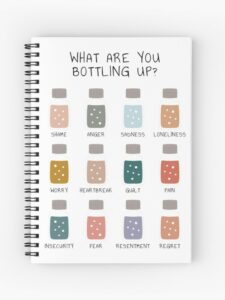 When we go through something traumatic, it is a tendency for people to bottle in their emotions. This can be due to many different factors, such as feeling like you need to be strong for others or feeling like no one will understand what you are going through. It is important to remember that it is okay to feel all of the emotions that come with PTSD. In fact, keeping yourself reserved can actually be more harmful than helpful.
When we go through something traumatic, it is a tendency for people to bottle in their emotions. This can be due to many different factors, such as feeling like you need to be strong for others or feeling like no one will understand what you are going through. It is important to remember that it is okay to feel all of the emotions that come with PTSD. In fact, keeping yourself reserved can actually be more harmful than helpful.
Bottling in your emotions can lead to them coming out in unhealthy ways, such as through self-harm, substance abuse, or aggression. It can also lead to numbing yourself from your emotions altogether, which can make it difficult to process what you have been through.
It can be helpful to find an outlet for your emotions, such as journaling or talking to a therapist. It is also important to reach out to your support system and let them know how you are feeling. They may not be able to understand what you are going through, but they can provide you with the support and love that you need to feel validated and acknowledged.
Make peace with your past
It is an unfortunate reality that we can not change what happened in our past. However, it is important to make peace with what happened in order to move on from it. This does not mean that you need to forgive your attacker or pretend like what happened was not traumatic. It simply means coming to a place of acceptance and understanding that what happened was out of your control.
Making peace with your past can be a difficult and painful process. However, it is an important step in your recovery. There are many different ways to do this, and it may take some time before you find what works best for you. Some people find therapy to be helpful, while others find self-help habits, such as journaling or meditation, to be more beneficial.
It is important to find what works best for you and to be patient with yourself. Making peace with your past is a necessary step in order to move on and live a fulfilling life.
Keep track of your mood and symptoms
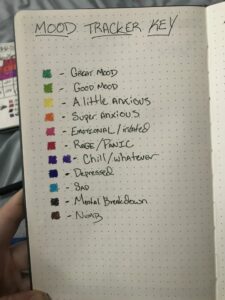 PTSD can be incredibly confusing or overwhelming. This is because the symptoms can be so varied and can come and go without warning. It can also be difficult to know what is a symptom of PTSD and what is just a normal reaction to a stressful situation.
PTSD can be incredibly confusing or overwhelming. This is because the symptoms can be so varied and can come and go without warning. It can also be difficult to know what is a symptom of PTSD and what is just a normal reaction to a stressful situation.
One way to help make sense of your symptoms is to keep track of your mood and any changes in your behavior. You can do this by keeping a journal or using a tracking app on your phone. This can help you see patterns in your symptoms and figure out what triggers them. It can also help you to see patterns or trends that you may not have noticed otherwise.
Tracking your mood and symptoms can also be helpful in showing your progress. It can be easy to get caught up in the negative aspects of PTSD and forget how far you have come. Seeing your progress, even if it is small, can be incredibly motivating and help you stay on track with your recovery path.
Create a healthy routine
This tip is not only for people struggling with PTSD, but also for people generally haviing a hard time. Creating a healthy routine can help to reduce stress, improve your mood, and give you a sense of control.
When creating a routine, it is important to keep it realistic. It should not be so rigid that it is impossible to stick to or so lax that it does not serve its purpose. Find a balance that works for you and your lifestyle.
Some people find it helpful to create a daily or weekly routine, while others prefer to plan out their day hour by hour. There is no wrong way to do this, as long as it works for you. Some things that you may want to include in your routine are:
- Exercise
- Healthy eating
- Spending time outdoors
- Meditation or relaxation
- Quality time with loved ones
- Pursuing a hobby
Your routine does not need to include all of these things, but try to include activities that are calming and make you feel good. This is your time to nurture yourself and focus on your recovery.
It is also important to be flexible with your routine. Things will come up that prevent you from sticking to your routine 100% of the time. This is okay. Do not beat yourself up if you have to skip a day or switch up your plans. Just try to get back on track as soon as possible.
Identify triggers
People with PTSD can be sensitive and easily triggered by certain sights, smells, sounds, or situations. It is important to be aware of what your triggers are so that you can avoid them or prepare for them.
Some people find it helpful to make a list of their triggers. This can be a physical list that you keep with you, or it could be a mental list that you keep in your head. Once you have identified your triggers, you can start to plan for them.
If you know that you will be exposed to a trigger, such as attending a funeral, try to prepare yourself mentally and emotionally. This may involve talking to a therapist or trusted loved one beforehand, meditating or doing relaxation exercises, or having a plan for what you will do if you start to feel overwhelmed.
If you can’t avoid a trigger, such as a certain smell that reminds you of the trauma, try to have coping mechanisms in place to help you get through it. This could involve deep breathing exercises, listening to music, or carrying a comforting item with you.
Give time to others

When one is struggling with trauma, it can be easy to shut down and become isolated. However, social support is an important part of recovery.
Spending time with loved ones, whether it is going on a walk, talking on the phone, or attending a group therapy session together can help you feel connected and supported. These people can provide you with a listening ear, a shoulder to cry on, or just some distraction from your trauma.
It is also important to give back to others. When you are focused on your own recovery, it can be easy to forget about the people around you. However, helping others can actually help you as well. It can take your mind off of your own problems and make you feel good. There are many ways to give back, such as volunteering, donating to a cause you care about, or simply doing something nice for someone.
Stay clear of unhealthy coping mechanisms
When one is battling PTSD, it is common to turn to unhealthy coping mechanisms in order to numb the pain. This could involve things such as:
- Substance abuse
- Overeating or undereating
- Reckless behavior
- Avoiding people and situations
It is important to avoid these coping mechanisms, as they will only make your PTSD worse in the long run. They may provide temporary relief, but they will not help you to heal. These will ultimately make your symptoms worse. They can lead to addiction, health problems, financial difficulties, and even death. If you find yourself turning to unhealthy coping mechanisms, it is important to seek professional help.
Indulge in hobbies
 Hobbies or involving in activities that make you happy can be a great way to cope with PTSD. When you are struggling with trauma, it is easy to forget about the things that make you happy. However, hobbies can help you to feel more like yourself again. They can provide a sense of purpose and distraction from your trauma.
Hobbies or involving in activities that make you happy can be a great way to cope with PTSD. When you are struggling with trauma, it is easy to forget about the things that make you happy. However, hobbies can help you to feel more like yourself again. They can provide a sense of purpose and distraction from your trauma.
Some people find that their hobby becomes even more important to them after they experience a traumatic event. This is because it provides them with a sense of normalcy and comfort. It can be something as simple as listening to music, going for walks, or reading. Find something that makes you happy and stick with it.
Adapt an attitude of gratitude
Gratitude, in its simplest form, is recognizing the good in your life. This can be difficult to do when you are struggling with PTSD. However, it is important to focus on the positive things in your life, no matter how small they may be.
Some people find it helpful to keep a gratitude journal. Every day, they write down three things that they are grateful for. This could be something as simple as the sun shining or a friend lending you a helping hand. Other people find it helpful to meditate on gratitude or say positive affirmations.
No matter how you choose to practice gratitude, it is important to find things to be thankful for. This will help you to focus on the good in your life, rather than the bad.
Be kind to yourself
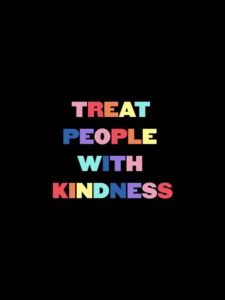 At the very last, it is crucial to provide yourself with compassion and care. This is not always easy, but it is so important. When you are struggling with PTSD, it is easy to be hard on yourself. You may feel like you are not doing enough or that you are not worthy of recovery.
At the very last, it is crucial to provide yourself with compassion and care. This is not always easy, but it is so important. When you are struggling with PTSD, it is easy to be hard on yourself. You may feel like you are not doing enough or that you are not worthy of recovery.
It is crucial to remember that everyone heals at their own pace. There is no timeline for healing. You are doing the best that you can and that is more than enough. Be patient with yourself and understand that your healing journey will take time. Most importantly, be kind to yourself. Treat yourself with compassion and care. This is essential for your recovery.
If you or someone you know is struggling with PTSD, please reach out for help. There are many resources available to you. You are not alone in this battle.
Conclusion
Conclusively, PTSD recovery is a rather difficult journey that is unique to everyone. It is important to remember that you are not alone in this and that there are people who want to help you. There are many organizations and groups out there devoted to helping those with PTSD. Do not hesitate to seek out their support!
Hope that this blog post has been helpful in giving you some direction on your journey to recovery. Remember, it is a process and there is no set timeline. Take things one day at a time, and eventually, you will get there.
If you or someone you know is looking for psychological help, Therapy Mantra is here for you. We are the leading providers of online therapy and counseling. Our team of highly trained and experienced therapists can provide assistance at the most affordable rates. Contact us today to learn more about our services. You may also visit our website to book an online therapy session or download our free Android or iOS app for more information.
